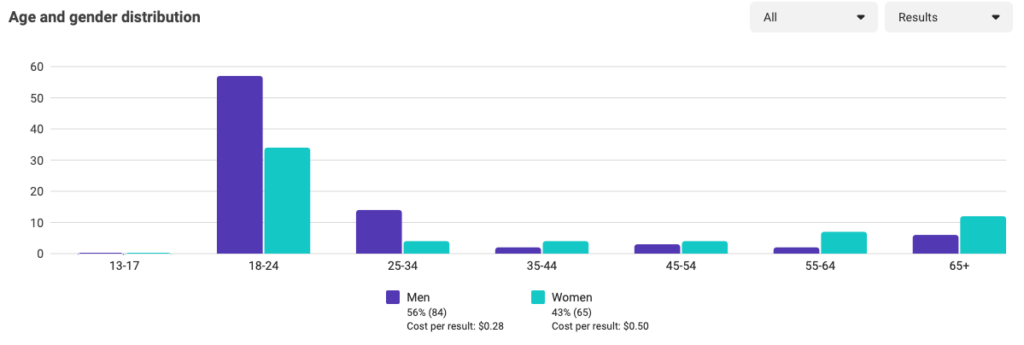The Role of Data and Analytics in Social Media Advertising: How Agencies Can Drive Better Results
Today, social media advertising has become one of the most effective ways to reach potential customers, build brand awareness, and drive conversions. However, running successful social media ads requires more than creative content and eye-catching visuals; it demands a deep understanding of data and analytics. Marketing agencies, with their advanced expertise in data-driven strategies, play a crucial role in maximizing the effectiveness of social media campaigns. By leveraging data, agencies can refine audience targeting, measure performance, optimize campaigns in real-time, and ultimately increase return on investment (ROI) for their clients.
The Power of Data
Data is the backbone of social media advertising. It allows advertisers to make informed decisions and fine-tune their campaigns for maximum efficiency. Every interaction users have with an ad—whether it’s a click, like, share, or comment—generates valuable data that can be analyzed to understand consumer behavior. This data provides insights into who your audience is, what content resonates with them, when they are most active, and how they interact with your brand.
Utilizing this data can help businesses move beyond surface-level advertising strategies. They can delve into complex patterns and trends to create highly targeted ads that reach the right people at the right time. With platforms like Facebook, Instagram, LinkedIn, and TikTok offering sophisticated analytics tools, agencies can access real-time data, track user engagement, and adjust campaigns on the fly.
Refining Audience Targeting
One of the most important aspects of advertising on social platforms is targeting the right audience. Even the most well-crafted ad will fail if it doesn’t reach the intended viewers. Data allows agencies to create precise audience profiles based on demographics, interests, behaviors, and even online purchasing habits.
For instance, agencies can use data to identify which audience segments are more likely to engage with certain types of content. This can be done by analyzing past ad performance, audience engagement levels, and conversion rates. Once a target audience is established, agencies can further refine their targeting by using lookalike audiences—groups of users who share similar characteristics with your existing customers.
Moreover, advanced analytics enable agencies to continuously test different audience segments through A/B testing. This involves creating multiple versions of an ad and seeing which one performs better with specific groups. By doing so, agencies can fine-tune their targeting strategies, ensuring that social media ads are reaching the most relevant audience, which leads to better engagement and higher conversion rates.
Measuring Campaign Success
One of the major challenges for businesses is measuring the success of their social media ads. While impressions and clicks are important, they don’t always tell the whole story. Media companies rely on a range of key performance indicators (KPIs) to evaluate the effectiveness of a campaign.
These KPIs include
Click-Through Rate (CTR): Measures the percentage of people who clicked on your ad after seeing it. A high CTR indicates that your ad is engaging and relevant to your target audience.
Conversion Rate: Tracks how many people took a desired action, such as making a purchase or signing up for a newsletter, after clicking on your ad.
Cost Per Click (CPC) and Cost Per Acquisition (CPA): Help measure the cost-effectiveness of your campaign by calculating how much you are spending to generate each click or conversion.
Return on Ad Spend (ROAS): Measures the revenue generated from your social media ads compared to the amount spent. It’s a critical metric for understanding the overall profitability of your campaign.
By constantly monitoring these metrics, branding agencies can measure campaign success with precision. If a campaign is underperforming, they can quickly pivot, reallocating budgets or adjusting strategies to improve performance.

Optimizing Campaigns with Real-Time Data
Businesses can use real-time data to make informed adjustments to campaigns while they are still running. For example, if an ad is performing well with a certain demographic but not with others, agencies can shift budget allocation to focus on the more engaged audience.
Real-time optimization also extends to content and creative assets. If data shows that a certain type of imagery or messaging is driving more engagement, agencies can adjust the creative elements of the ad to align with what resonates most with the audience.
Additionally, agencies can leverage predictive analytics to forecast future trends and customer behaviors. By analyzing historical data, agencies can predict when users are most likely to convert and adjust ad delivery times or bidding strategies accordingly.
Increasing ROI Through Data-Driven Strategies
The ultimate goal of any social media advertising campaign is to maximize ROI. By using advanced analytics, media companies can implement data-driven strategies that not only improve ad performance but also reduce costs. For instance, agencies can focus on high-performing ads and eliminate those that aren’t driving results, ensuring that every dollar spent is contributing to the campaign’s success.
Data can also help agencies identify opportunities for retargeting—showing ads to people who have previously interacted with your brand but didn’t convert. Retargeting ads have proven to be highly effective in boosting conversions, as they remind potential customers of your product or service at a later time when they may be more inclined to take action.
Conclusion
In today’s competitive digital landscape, data and analytics are the foundation of successful social media advertising campaigns. Advertising agencies, equipped with advanced tools and expertise, play a crucial role in helping businesses navigate the complexities of data-driven advertising. From refining audience targeting and measuring campaign success to optimizing ads in real time and increasing ROI, agencies use data to drive better results and ensure that social media advertising efforts are both effective and efficient. By leveraging the power of analytics, businesses can unlock the full potential of social media advertising and achieve sustained growth.
 Get In Touch
Get In Touch